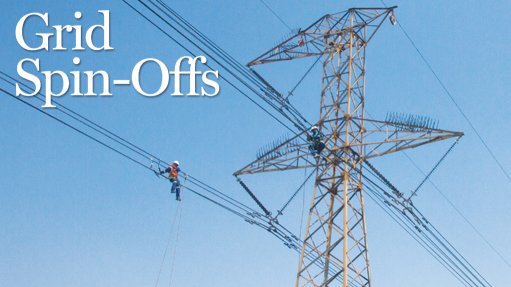Dipula records 4% increase in property portfolio value for 2024
JSE-listed real estate investment trust (Reit) Dipula Income Fund’s property portfolio has increased by 4% in value to R10.2-billion in the financial year ended August 31, contributing to a 5% rise in net asset value.
Dipula has a portfolio of 165 retail, office, industrial and residential rental properties. Convenience, rural and township retail centres produce 65% of its weighted portfolio income, with 60% of portfolio rental income generated in Gauteng.
“South African trading conditions and consumer sentiment are improving post the July national elections. The new Government of National Unity has been well received, with parties committed to enhancing service delivery.
“Global and local interest rate cuts, easing inflation and a stronger rand also bode well for the economy. We anticipate these macroeconomic improvements will positively impact the property market in the short to medium term,” Dipula CEO Izak Petersen said on November 13.
Despite these recent improvements, however, he admitted that the year had been challenging owing to rising property costs and interest rates peaking.
Dipula’s revenue grew by 7% despite negative rental reversions in government-tenanted offices and lower income owing to prior-year disposals. Net property income increased by 2%, under pressure from above-inflation municipal hikes that significantly increased property expenses, higher maintenance spending, and rising third-party contract labour costs. Net finance costs increased by 3%.
Overall, prior disposals, bigger expenses and higher finance costs led to a decrease in distributable earnings a share of 4%. The declared dividends totalled 90% of distributable earnings.
Operational results were defined by high levels of active leasing, the company revealed. Dipula concluded leases worth R1.4-billion during the year, keeping its portfolio well-occupied with longer leases. It achieved robust tenant retention, which improved from 84% to 87%, with R1.2-billion of leasing representing renewals.
Retail vacancies improved from 7.5% to 6.4%. However, the overall portfolio vacancy rate was 7.5%, up from 6% in the previous year, primarily owing to higher vacancies in the office and industrial sectors.
All tenant categories across Dipula's 83 retail properties reported positive turnover growth, with health and beauty, restaurants and fast food, liquor and hardware delivering the strongest growth. When tenants chose not to renew their leases during the year, Dipula secured replacement rentals at a 14% higher rate. As such, the retail portfolio's value increased by 8%.
Accounting for 16% of rental income, Dipula's office space portfolio ended the year with a vacancy rate of 22%. However, Dipula expected a gradual recovery in line with recent sector improvements, supported by limited new development activity that would, in turn, support rising occupancy rates and healthy rental growth.
Dipula's mid-sized industrial and logistics facilities in strategic locations represent 14% of its rental income. With a vacancy rate of just 3%, the stable portfolio has the lowest vacancy across Dipula's assets.
The Reit’s residential property portfolio accounts for 4% of rental income and recorded an average vacancy for the 2024 financial year of 6%.
Dipula’s cost control measures resulted in an improved administrative cost-to-income ratio, which reduced from 4.4% to 3.3%. While the overall cost-to-income ratio temporarily rose to 42.3%, from 39.5% in 2023, Peterson said the increase was mainly driven by elevated property-related expenses and lower municipal cost recoveries. He expected this to return to normal levels of about 40% in the 2025 financial year.
Dipula’s asset risk management and value-adding strategies saw it invest R169-million in refurbishments and capital expenditure during the year. The Reit also disposed of properties for R37-million, with proceeds funding value-enhancing revamps and the roll-out of renewable energy and backup power.
“We're building a future-fit portfolio by investing in sustainable assets. This year, we rolled out the first phase of our solar PV programme, which is now live at nine of ten sites. The project increases Dipula’s solar power capacity by 5.3 kW, taking it from 1.6 kW to 7 kW – a number we plan to treble in the next 24 to 36 months. We also invested in waste and water management, community investment, staff training and wellness, and nurturing new talent through internships,” Petersen said.
Dipula restructured its debt facilities from March 1 with a R3.8-billion syndication programme, extending its weighted average debt expiry period significantly from 1.9 years to 4.1 years.
As such, Dipula maintained debt levels comfortably above all covenant requirements, with a year-end gearing of 35.7%, an interest coverage ratio of 2.7 times, and undrawn facilities of R80-million. Further, solid balance sheet metrics ensured Dipula’s credit rating was affirmed at BBB+ (South Africa) and A2 (South Africa), respectively, with a stable outlook.
Looking ahead, Peterson said the long negative cycle for South African real estate was showing signs of improving, noting research that highlights stronger leasing performance across office, retail, industrial and residential properties.
“As inflation eases and the power grid stabilises, we foresee rental growth and a slowdown in cost increases. This should bolster business and consumer confidence, potentially spurring economic investment and strengthening property fundamentals, despite navigating ongoing challenges presented by failing municipalities,” he said.
Peterson said Dipula expected better performance from the 2025 financial year, having completed various capital projects. He said the Reit’s retail and industrial portfolios were poised to continue performing well, while the office sector was expected to experience a gradual recovery.
High occupancy levels are expected for the affordable residential sector, with rental growth that at least keeps pace with inflation.
Moreover, Dipula expects distributable earnings growth of at least 5% for the year ahead.
“Dipula's strategy prioritises capital allocation to energy sustainability, portfolio- and income-enhancing developments and elevating tenant quality. Discerning investment decisions, positive economic trends and focused management will drive improved performance and continue to deliver sustainable value for our stakeholders,” Petersen said.
Article Enquiry
Email Article
Save Article
Feedback
To advertise email advertising@creamermedia.co.za or click here
Press Office
Announcements
What's On
Subscribe to improve your user experience...
Option 1 (equivalent of R125 a month):
Receive a weekly copy of Creamer Media's Engineering News & Mining Weekly magazine
(print copy for those in South Africa and e-magazine for those outside of South Africa)
Receive daily email newsletters
Access to full search results
Access archive of magazine back copies
Access to Projects in Progress
Access to ONE Research Report of your choice in PDF format
Option 2 (equivalent of R375 a month):
All benefits from Option 1
PLUS
Access to Creamer Media's Research Channel Africa for ALL Research Reports, in PDF format, on various industrial and mining sectors
including Electricity; Water; Energy Transition; Hydrogen; Roads, Rail and Ports; Coal; Gold; Platinum; Battery Metals; etc.
Already a subscriber?
Forgotten your password?
Receive weekly copy of Creamer Media's Engineering News & Mining Weekly magazine (print copy for those in South Africa and e-magazine for those outside of South Africa)
➕
Recieve daily email newsletters
➕
Access to full search results
➕
Access archive of magazine back copies
➕
Access to Projects in Progress
➕
Access to ONE Research Report of your choice in PDF format
RESEARCH CHANNEL AFRICA
R4500 (equivalent of R375 a month)
SUBSCRIBEAll benefits from Option 1
➕
Access to Creamer Media's Research Channel Africa for ALL Research Reports on various industrial and mining sectors, in PDF format, including on:
Electricity
➕
Water
➕
Energy Transition
➕
Hydrogen
➕
Roads, Rail and Ports
➕
Coal
➕
Gold
➕
Platinum
➕
Battery Metals
➕
etc.
Receive all benefits from Option 1 or Option 2 delivered to numerous people at your company
➕
Multiple User names and Passwords for simultaneous log-ins
➕
Intranet integration access to all in your organisation





















